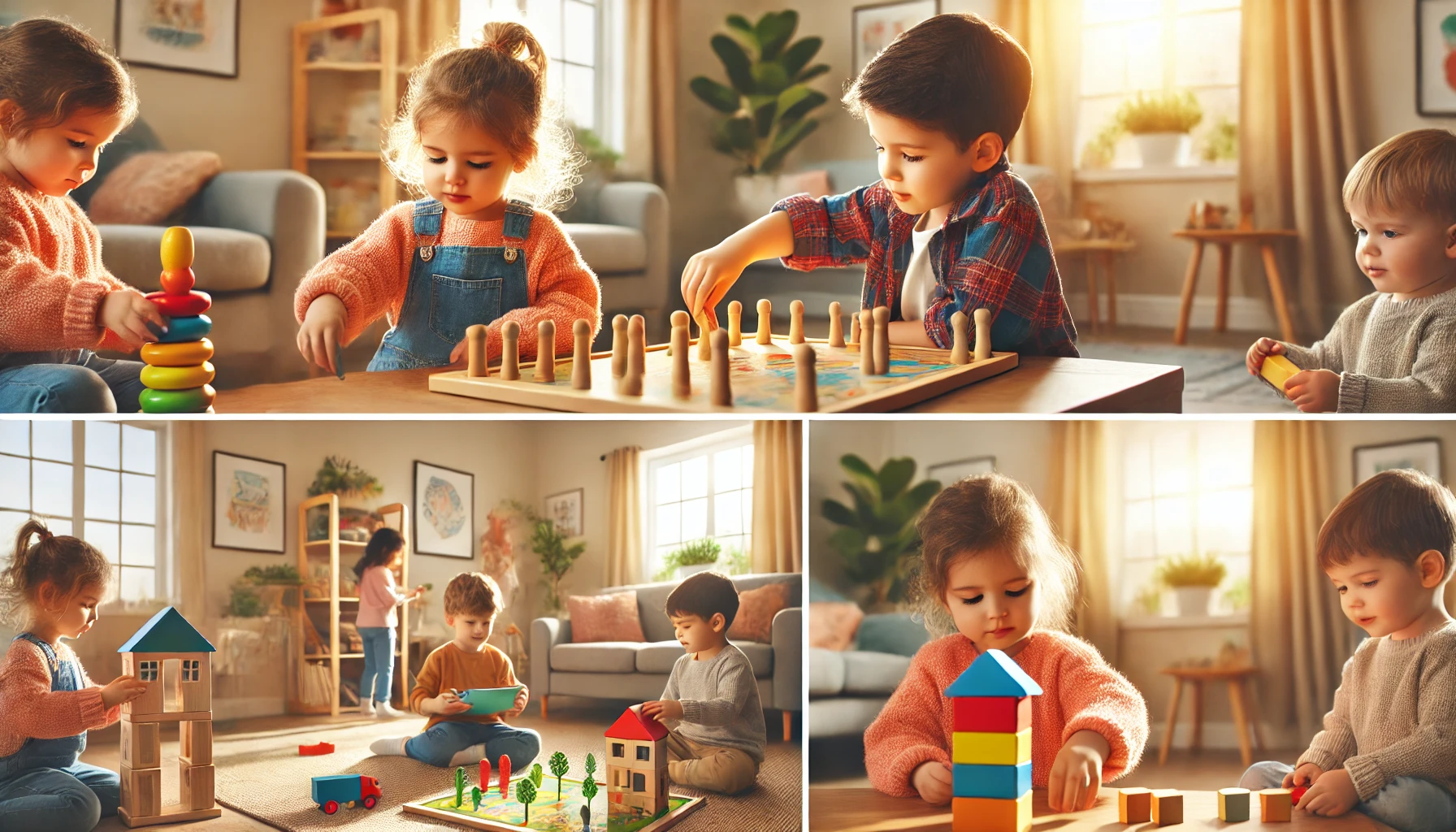How to Teach Young Children About Sharing and Cooperation at Home
Sharing and cooperation are essential social skills that help children build friendships, work in teams, and develop empathy. Teaching these skills at home through play, role-modeling, and daily activities helps children learn how to take turns, be patient, and consider the needs of others. In this article, we’ll explore fun and practical ways to encourage sharing and cooperation in young children.
Why Teaching Sharing and Cooperation Matters
- Strengthens friendships – Helps children build positive relationships.
- Encourages teamwork – Teaches children to work together toward common goals.
- Develops patience and self-control – Helps kids learn to wait their turn.
- Fosters empathy – Encourages children to think about others’ feelings.
- Prepares for school and group activities – Helps children adjust to social environments.
1. Model Sharing and Cooperative Behavior
Children learn best by watching how adults interact with others.
Activity Idea:
- Share food or toys with your child and say, “I love sharing with you!”
- Show cooperation by working together on household tasks, like setting the table.
- Use kind language, such as “Let’s do this together” or “Would you like to take turns?”
What Kids Learn:
- The importance of generosity
- How to work together with others
- Positive social behavior
2. Play Turn-Taking Games
Taking turns teaches patience and fairness in a fun way.
Activity Idea:
- Play board games where each player must wait for their turn.
- Use a timer during activities, like swinging at the park or playing with a toy.
- Practice turn-taking during storytelling, where each person adds to the story.
What Kids Learn:
- Self-regulation and patience
- The importance of fairness
- How to take turns in conversations and play
3. Read Books About Sharing and Cooperation
Stories help children understand the value of teamwork and generosity.
Activity Idea:
- Read books where characters solve problems by sharing or working together.
- Pause and ask, “How do you think they feel when they share?”
- Encourage children to retell the story, focusing on the lesson of cooperation.
What Kids Learn:
- Emotional awareness in social situations
- The benefits of sharing and teamwork
- Storytelling and comprehension skills
4. Encourage Group Activities
Working on projects together builds a sense of cooperation.
Activity Idea:
- Cook or bake something together, assigning small tasks to each child.
- Build a block tower as a team, where each child contributes.
- Organize a scavenger hunt where siblings or friends work in pairs.
What Kids Learn:
- The value of working together
- Problem-solving in group settings
- Leadership and teamwork skills
5. Praise and Reinforce Positive Behavior
Recognizing and praising acts of sharing and cooperation encourages children to repeat them.
Activity Idea:
- Say, “I saw how you shared your toy with your friend—that was very kind!”
- Use a sticker chart to reward cooperative behavior.
- Celebrate teamwork by saying, “Look what we accomplished together!”
What Kids Learn:
- Positive reinforcement for good actions
- How sharing and teamwork benefit everyone
- Motivation to continue cooperative behavior
6. Teach Conflict Resolution Through Role-Playing
Helping children practice resolving disagreements strengthens their cooperation skills.
Activity Idea:
- Act out scenarios where one child doesn’t want to share, then discuss solutions.
- Teach phrases like, “Can I have a turn when you’re done?”
- Encourage children to talk through conflicts instead of grabbing or arguing.
What Kids Learn:
- Problem-solving in social situations
- How to express needs respectfully
- Negotiation and compromise skills
7. Use Everyday Moments to Teach Sharing
Daily life offers many natural opportunities for practicing generosity.
Activity Idea:
- Let siblings or friends take turns choosing a movie or game.
- Encourage sharing snacks by asking, “Would you like to offer some to your brother?”
- Talk about how sharing makes people feel happy and included.
What Kids Learn:
- How to share naturally in daily life
- The emotional impact of generosity
- The importance of thinking about others
8. Be Patient and Consistent
Learning to share and cooperate takes time, so gentle guidance is key.
Activity Idea:
- If a child refuses to share, don’t force it—model sharing instead and encourage trying again later.
- Be consistent with expectations and remind children calmly when needed.
- Praise effort even if sharing is still a challenge: “You tried to take turns, and that’s great!”
What Kids Learn:
- That sharing and cooperation are lifelong skills
- The importance of trying, even if it’s difficult
- Patience and growth in social skills
Final Thoughts
Teaching young children about sharing and cooperation helps them build kindness, teamwork, and social confidence. By modeling generosity, using fun activities, and reinforcing positive behavior, parents can create a supportive environment where children learn to work together and share with others.
